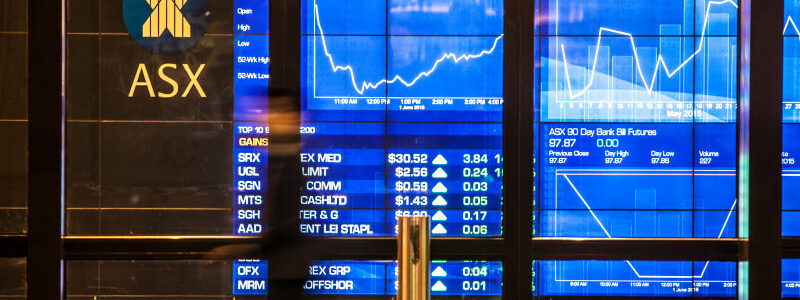
Surging US inflation sparks fears of a global recession
Surging inflation in the world’s largest economy could lead to steeper interest rate increases in Australia, financial experts have warned, after the local sharemarket tumbled to its worst day in almost three months on renewed fears of a global recession
About $60 billion was wiped off the bourse on Wednesday as the benchmark ASX 200 index plunged 2.6 per cent. The fall came after a shock jump in US inflation sparked warnings of aggressive interest rate hikes from the US Federal Reserve, a move that may pressure the Reserve Bank of Australia to follow suit.
The ASX 200 had its worst day in almost three months on Wednesday.Credit:iStock
US consumer prices rose by a higher than expected 8.3 per cent in the year to August, sending shockwaves through global markets as investors fretted over the risk that more interest rate rises could spark a recession in the country.
Locally, fund managers warned Australia’s inflation could also be more difficult to tame, and one major investment bank raised its forecast for further RBA interest rate rises.
“I think it reinforces the message that inflation can be persistent and it can hang around for longer than we think,” ANZ Bank’s head of Australian economics, David Plank, said. “What the RBA do will depend more on our data, but I do think that with the inflation issues that other country are suffering – the RBA is going to take some lessons from that.”
The RBA raised the official cash rate by 0.5 percentage points this week, meaning it has now jacked up interest rates from 0.1 per cent in May to 2.35 per cent this month, in the most aggressive monetary tightening since 1994.
Plank said it was “premature” to think the Reserve Bank had stopped making 0.5 percentage point increases in the cash rate, as it has at its last four rate-setting meetings.
Portfolio manager at Regal Funds Management, Mark Nathan, said there were some common forces driving inflation higher in the US and Australia, and a key reason the ASX fell was a fear of higher interest rates.
“A lot of the factors which are big issues in the US are also issues in Australia. We also have the issue of unemployment being so low, and potential wage inflation,” Nathan said.
Nathan said the US Fed’s interest rate settings indirectly affected interest rates in other countries, including Australia. That is because higher US rates could weaken the Aussie dollar-US dollar exchange rate, which in turn could raise the cost of imports and add to inflation.
Portfolio manager at Milford Asset Management, Jason Kurarangi, said the key worry in the US was a recession, but there were also similarities between the inflation in the US and Australia.
“The same things that are happening in the US around wage inflation and sticky components like rents are also starting to factor in Australia as well. That’s the stuff that can be quite persistent and require more firm action from the central banks,” Kurarangi said.
The US data showed that another key measure of inflation rose 0.6 per cent in August, far quicker than expected, and futures markets are now betting on steeper rate rises in the US.
Futures markets are predicting the RBA will increase the cash rate from 2.35 per cent to about 3 per cent by the end of the year, and investment bank Nomura on Wednesday lifted its cash rate forecast, tipping another 0.5 percentage point increase next month.
However, other economists talked down the implications of the US surge in inflation for Australia. National Australia Bank chief economist Alan Oster said the data showed US inflation was hard to tame, but he thought markets were over-reacting. “Does it necessarily mean that the RBA will increase rates more aggressively? I don’t think so. It’s going to really depend on the data flow,” Oster said.
The Commonwealth Bank’s head of fixed income and rates strategy, Martin Whetton, said markets now expected a sharper increase in US interest rates, but he did not think the US data meant Australia’s inflation would also be higher. “It’s US inflation, and it’s not the same stuff as Australian inflation. They are just different beasts,” Whetton said.
The Market Recap newsletter is a wrap of the day’s trading. Get it each weekday afternoon.
Most Viewed in Business
From our partners
Source: Read Full Article
